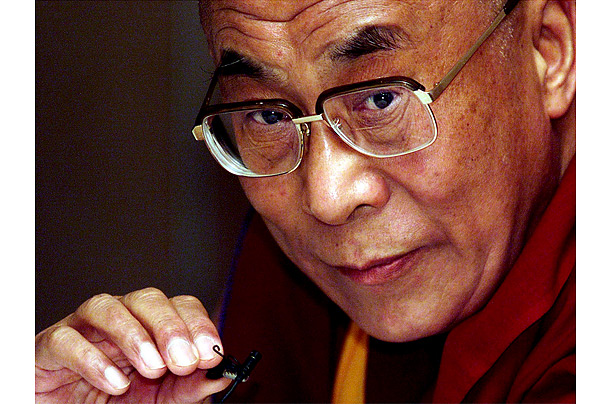Introduction
The Nobel Peace Prize (Swedish, Danish and Norwegian: Nobels fredspris)
is one of five Nobel Prizes bequeathed by the Swedish industrialist and
inventor Alfred Nobel. According to Nobel's will, the Peace Prize
should be awarded "to the person who shall have done the most or the
best work for fraternity between nations, for the abolition or
reduction of standing armies and for the holding and promotion of peace
congresses."[1]
Alfred Nobel's will stated that the prize should be awarded by a
committee of five people elected by the Norwegian Parliament. The Peace
Prize is presented annually in Oslo, Norway, in the presence of the
king, on December 10 (the anniversary of Nobel's death), and is the
only Nobel Prize not presented in Stockholm, Sweden. "In Oslo, the
Chairman of the Norwegian Nobel Committee presents the Nobel Peace
Prize in the presence of the King of Norway. Under the eyes of a
watching world, the Nobel Laureate receives three things: a diploma, a
medal and a document confirming the prize amount." The Nobel Peace
Prize Ceremony is held at the Oslo City Hall, followed the next day by
the Nobel Peace Prize Concert, which is broadcast to more than 450
million households in over 150 countries around the world. The concert
has received worldwide fame and the participation of top celebrity
hosts and performers. The selection of Nobel Peace Prize winners
sometimes causes controversy, as the list of winners includes people
who formerly used violent methods of problem-solving, but then later
made exceptional concessions to non-violence in the attempt to achieve
peace.
Mohammed Abdel-Raouf Arafat As Qudwa al-Hussaeini

was born on 24 August 1929 in Cairo**, his father a textile merchant
who was a Palestinian with some Egyptian ancestry, his mother from an
old Palestinian family in Jerusalem. She died when Yasir, as he was
called, was five years old, and he was sent to live with his maternal
uncle in Jerusalem, the capital of the British Mandate of Palestine. He
has revealed little about his childhood, but one of his earliest
memories is of British soldiers breaking into his uncle's house after
midnight, beating members of the family and smashing furniture.
In late 2004, after effectively being confined within his Ramallah
compound for over two years by the Israeli army, Arafat became ill and
fell into a coma. While the precise cause of death remains unknown,
doctors spoke of idiopathic thrombocytopenic purpura and cirrhosis, but
no autopsy was performed. Arafat died on November 11, 2004 at the age
of 75.
Later in his career, Arafat engaged in a series of negotiations
with the government of Israel to end the decades-long conflict between
that country and the PLO. These included the Madrid Conference of 1991,
the 1993 Oslo Accords and the 2000 Camp David Summit. His political
rivals, including Islamists and several PLO leftists, often denounced
him for being corrupt or too submissive in his concessions to the
Israeli government. In 1994, Arafat received the Nobel Peace Prize,
together with Yitzhak Rabin and Shimon Peres, for the negotiations at
Oslo. During this time, Hamas and other militant organizations rose to
power and shook the foundations of the authority Fatah under Arafat had
established in the Palestinian territories.
Muhammad Yunus

(Bengali:, pronounced Muhammôd Iunus) (born 28 June 1940) is a
Bangladeshi banker and economist. He previously was a professor of
economics and is famous for his successful application of microcredit -
the extension of small loans. These loans are given to entrepreneurs
too poor to qualify for traditional bank loans. Yunus is also the
founder of Grameen Bank. In 2006, Yunus and the bank were jointly
awarded the Nobel Peace Prize, "for their efforts to create economic
and social development from below."[1] Yunus himself has received
several other national and international honors. He is the author of
Banker to the Poor and a founding board member of Grameen Foundation.
In early 2007 Yunus showed interest in launching a political party in
Bangladesh named Nagorik Shakti (Citizen Power), but later discarded
the plan. He is one of the founding members of Global Elders. Yunus
also serves on the board of directors of the United Nations Foundation,
a public charity created in 1998 with entrepreneur and philanthropist
Ted Turner’s historic $1 billion gift to support United Nations causes.
The UN Foundation builds and implements public-private partnerships to
address the world’s most pressing problems, and broadens support for
the UN.
Early years
Muhammad Yunus at Chittagong Collegiate School, while visiting the school in 2003.
The third oldest of nine children,[3] Yunus was born on 28 June 1940 to
a Muslim family in the village of Bathua, by the Boxirhat Road in
Hathazari, Chittagong, then in British India (now in Bangladesh).[4][5]
His father was Hazi Dula Mia Shoudagar, a jeweler, and his mother was
Sofia Khatun. His early childhood years were spent in the village. In
1944, his family moved to the city of Chittagong, and he was shifted to
Lamabazar Primary School from his village school.[4][6] By 1949, his
mother was afflicted with psychological illness.[5] Later, he passed
the matriculation examination from Chittagong Collegiate School
securing the 16th position among 39,000 students in East Pakistan.[6]
During his school years, he was an active Boy Scout, and traveled to
West Pakistan and India in 1952, and to Canada in 1955 to attend
Jamborees.[6] Later when Yunus was studying at Chittagong College, he
became active in cultural activities and won awards for drama
acting.[6] In 1957, he enrolled in the department of economics at Dhaka
University and completed his BA in 1960 and MA in 1961.
Born 28 June 1940
Chittagong, British India
Residence Bangladesh
Nationality Bangladeshi
Occupation Founder of Grameen Bank
Religious beliefs Islam
Children 2
Kofi Atta Annan,

GCMG (born 8 April 1938) is a Ghanaian diplomat who served as the
seventh Secretary-General of the United Nations from 1 January 1997 to
1 January 2007. Annan and the United Nations were the co-recipients of
the 2001 Nobel Peace Prize.
Early years and family
Kofi Annan was born to Victoria and Henry Reginald Annan in the
Kofandros section of Kumasi, Ghana. He is a twin, a respected status in
Ghanaian culture. His twin sister Efua Atta, who died in 1991, shares
the middle name 'Atta', which in Fante and Akan means 'twin
'.
Annan's family was part of the country's elite; both of his
grandfathers and his uncle were tribal chiefs. His father was Asante
and Fante; his mother was Fante. Annan's father worked for a long
period as an export manager for the Lever Brothers cocoa
company.[citation needed]
Annan is married to Nane Maria Annan, a Swedish lawyer and artist who
is the half-niece of Raoul Wallenberg. He has two children, Kojo and
Ama, from his previous marriage to a Nigerian woman, Titi Alakija, whom
he divorced in the late 1970s. Annan also has one stepchild, Nina
Cronstedt de Groot, Nane's daughter from a previous marriage.
Name
His middle name Atta is that of an elder twin. The name Annan can
indicate that a child was the fourth in the family, but in Annan's
family at some time in the past it became a family name, which Annan
inherited from his parents.[citation needed]
In the Ghanaian tradition, Children are named according to the day of
the week on whihc they were born. Kofi in Akan is the name that
corresponds with Friday.
In his earlier years at the UN, Annan's last name had widely been
mispronounced as rhyming with "anon"; Annan has let it be known that he
pronounces his name to rhyme with "canon" ænən
Abdelaziz Bouteflika

(IPA: [abdəlazɪz butəflika]) (Arabic: (born March 2, 1937 in Oujda, Morocco) has been the President of Algeria since 1999
His father, Ahmed Bouteflika, was born in Tlemcen. Ahmed Bouteflika was
married to two women: Belkaïd Rabia and Ghezlaoui Mansouriah (the
mother of the current President)
bdelaziz Bouteflika was born on March 2, 1937 in Oujda, Morocco, he was
the first child of his mother and the second child of his father
(Fatima, his half-sister, preceded him). Bouteflika has three
half-sisters (Fatima, Yamina, and Aïcha), as well as four brothers
(Abdelghani, Mustapha, Abderahim and Saïd) and one sister (Latifa).
Saïd serves as Abdelaziz Bouteflika's personal physician, and is said
by some to be an important figure in Bouteflika's inner circle of
advisers.
Abdelaziz Bouteflika has been married since August 1990 and has no
children. His wife, Amal Triki, is a daughter of Yahia Triki, an
ex-diplomat.
statements of their achievements
We hope that upon perusal of our letter, you will consider supporting
peace and reconciliation in Algeria through nominating President
Bouteflika for the Nobel Peace Prize 2008 for his outstanding role as a
peace-maker since he was elected to the Presidency of the Republic in
1999.
He thus saved the country from destruction and spared not only Algeria,
but Africa and Mediterranean Basin countries from the scourge of
terrorism.
Petition:
We therefore express our proposal moving the following:
• Convinced of the need to continue this process of resolving
differences through dialogue and of the necessity to consolidate peace
among Algerians after a serious crisis.which claimed the lives of some
of the best of the country's citizens.
• Also convinced that President Abdelaziz Bouteflika has contributed to maintaining peace in Algeria and in other countries.
• Recognizing in particular his commitment to end the bloody conflict between Ethiopia and Eritrea.
• Further recognizing that President Bouteflika's pragmatism and
diplomatic strategy helped put an end to a long war between Iraq and
Iran.
• Sharing his vision as a man of peace and as an experienced diplomat
who consolidated socio-economic and political relations between African
countries and the European Union in support of sustainable development.
• Welcoming President Bouteflika's political choices, and strategic
sense which have led Algeria to national reconciliation, to a return to
peace and stability, to the strengthening of the rule of law and to
democratic practice, as well as an open economic and investment policy
and to sound management of public funds.
• Believing that for these outstanding initiatives and the courage
their implementation had required, President Abdelaziz Bouteflika
deserves to be awarded the Nobel Peace Prize.
• Therefore invites the Nobel Peace Prize Committee to consider
awarding this prize to His Excellency Abdelaziz Bouteflika as an
enlightened peace-maker in his country and abroad.
Sign the petition
The Bouteflika Nobel Peace Prize 2008 petition to Peace was written by bouteflika and is hosted free of charge at GoPetition
written The justification for my nominees
I think that President Abdelaziz Bouteflika is well-deserved Nobel
Peace Prize given to put the draft peace and national interest and
backed by support for peace in this country
In addition to seeking to spread peace and security within countries
and spread brotherhood among Algerians and the peace treaties with
other countries, especially countries of the Maghreb
And the success of this project is a proof of its success and entitlement to the well-deserved award
So I hope to win the Nobel Peace Prize for 2009
The Nobel Peace Prize (Swedish, Danish and Norwegian: Nobels fredspris)
is one of five Nobel Prizes bequeathed by the Swedish industrialist and
inventor Alfred Nobel. According to Nobel's will, the Peace Prize
should be awarded "to the person who shall have done the most or the
best work for fraternity between nations, for the abolition or
reduction of standing armies and for the holding and promotion of peace
congresses."[1]
Alfred Nobel's will stated that the prize should be awarded by a
committee of five people elected by the Norwegian Parliament. The Peace
Prize is presented annually in Oslo, Norway, in the presence of the
king, on December 10 (the anniversary of Nobel's death), and is the
only Nobel Prize not presented in Stockholm, Sweden. "In Oslo, the
Chairman of the Norwegian Nobel Committee presents the Nobel Peace
Prize in the presence of the King of Norway. Under the eyes of a
watching world, the Nobel Laureate receives three things: a diploma, a
medal and a document confirming the prize amount." The Nobel Peace
Prize Ceremony is held at the Oslo City Hall, followed the next day by
the Nobel Peace Prize Concert, which is broadcast to more than 450
million households in over 150 countries around the world. The concert
has received worldwide fame and the participation of top celebrity
hosts and performers. The selection of Nobel Peace Prize winners
sometimes causes controversy, as the list of winners includes people
who formerly used violent methods of problem-solving, but then later
made exceptional concessions to non-violence in the attempt to achieve
peace.
Mohammed Abdel-Raouf Arafat As Qudwa al-Hussaeini

was born on 24 August 1929 in Cairo**, his father a textile merchant
who was a Palestinian with some Egyptian ancestry, his mother from an
old Palestinian family in Jerusalem. She died when Yasir, as he was
called, was five years old, and he was sent to live with his maternal
uncle in Jerusalem, the capital of the British Mandate of Palestine. He
has revealed little about his childhood, but one of his earliest
memories is of British soldiers breaking into his uncle's house after
midnight, beating members of the family and smashing furniture.
In late 2004, after effectively being confined within his Ramallah
compound for over two years by the Israeli army, Arafat became ill and
fell into a coma. While the precise cause of death remains unknown,
doctors spoke of idiopathic thrombocytopenic purpura and cirrhosis, but
no autopsy was performed. Arafat died on November 11, 2004 at the age
of 75.
Later in his career, Arafat engaged in a series of negotiations
with the government of Israel to end the decades-long conflict between
that country and the PLO. These included the Madrid Conference of 1991,
the 1993 Oslo Accords and the 2000 Camp David Summit. His political
rivals, including Islamists and several PLO leftists, often denounced
him for being corrupt or too submissive in his concessions to the
Israeli government. In 1994, Arafat received the Nobel Peace Prize,
together with Yitzhak Rabin and Shimon Peres, for the negotiations at
Oslo. During this time, Hamas and other militant organizations rose to
power and shook the foundations of the authority Fatah under Arafat had
established in the Palestinian territories.
Muhammad Yunus

(Bengali:, pronounced Muhammôd Iunus) (born 28 June 1940) is a
Bangladeshi banker and economist. He previously was a professor of
economics and is famous for his successful application of microcredit -
the extension of small loans. These loans are given to entrepreneurs
too poor to qualify for traditional bank loans. Yunus is also the
founder of Grameen Bank. In 2006, Yunus and the bank were jointly
awarded the Nobel Peace Prize, "for their efforts to create economic
and social development from below."[1] Yunus himself has received
several other national and international honors. He is the author of
Banker to the Poor and a founding board member of Grameen Foundation.
In early 2007 Yunus showed interest in launching a political party in
Bangladesh named Nagorik Shakti (Citizen Power), but later discarded
the plan. He is one of the founding members of Global Elders. Yunus
also serves on the board of directors of the United Nations Foundation,
a public charity created in 1998 with entrepreneur and philanthropist
Ted Turner’s historic $1 billion gift to support United Nations causes.
The UN Foundation builds and implements public-private partnerships to
address the world’s most pressing problems, and broadens support for
the UN.
Early years
Muhammad Yunus at Chittagong Collegiate School, while visiting the school in 2003.
The third oldest of nine children,[3] Yunus was born on 28 June 1940 to
a Muslim family in the village of Bathua, by the Boxirhat Road in
Hathazari, Chittagong, then in British India (now in Bangladesh).[4][5]
His father was Hazi Dula Mia Shoudagar, a jeweler, and his mother was
Sofia Khatun. His early childhood years were spent in the village. In
1944, his family moved to the city of Chittagong, and he was shifted to
Lamabazar Primary School from his village school.[4][6] By 1949, his
mother was afflicted with psychological illness.[5] Later, he passed
the matriculation examination from Chittagong Collegiate School
securing the 16th position among 39,000 students in East Pakistan.[6]
During his school years, he was an active Boy Scout, and traveled to
West Pakistan and India in 1952, and to Canada in 1955 to attend
Jamborees.[6] Later when Yunus was studying at Chittagong College, he
became active in cultural activities and won awards for drama
acting.[6] In 1957, he enrolled in the department of economics at Dhaka
University and completed his BA in 1960 and MA in 1961.
Born 28 June 1940
Chittagong, British India
Residence Bangladesh
Nationality Bangladeshi
Occupation Founder of Grameen Bank
Religious beliefs Islam
Children 2
Kofi Atta Annan,

GCMG (born 8 April 1938) is a Ghanaian diplomat who served as the
seventh Secretary-General of the United Nations from 1 January 1997 to
1 January 2007. Annan and the United Nations were the co-recipients of
the 2001 Nobel Peace Prize.
Early years and family
Kofi Annan was born to Victoria and Henry Reginald Annan in the
Kofandros section of Kumasi, Ghana. He is a twin, a respected status in
Ghanaian culture. His twin sister Efua Atta, who died in 1991, shares
the middle name 'Atta', which in Fante and Akan means 'twin
'.
Annan's family was part of the country's elite; both of his
grandfathers and his uncle were tribal chiefs. His father was Asante
and Fante; his mother was Fante. Annan's father worked for a long
period as an export manager for the Lever Brothers cocoa
company.[citation needed]
Annan is married to Nane Maria Annan, a Swedish lawyer and artist who
is the half-niece of Raoul Wallenberg. He has two children, Kojo and
Ama, from his previous marriage to a Nigerian woman, Titi Alakija, whom
he divorced in the late 1970s. Annan also has one stepchild, Nina
Cronstedt de Groot, Nane's daughter from a previous marriage.
Name
His middle name Atta is that of an elder twin. The name Annan can
indicate that a child was the fourth in the family, but in Annan's
family at some time in the past it became a family name, which Annan
inherited from his parents.[citation needed]
In the Ghanaian tradition, Children are named according to the day of
the week on whihc they were born. Kofi in Akan is the name that
corresponds with Friday.
In his earlier years at the UN, Annan's last name had widely been
mispronounced as rhyming with "anon"; Annan has let it be known that he
pronounces his name to rhyme with "canon" ænən
Abdelaziz Bouteflika

(IPA: [abdəlazɪz butəflika]) (Arabic: (born March 2, 1937 in Oujda, Morocco) has been the President of Algeria since 1999
His father, Ahmed Bouteflika, was born in Tlemcen. Ahmed Bouteflika was
married to two women: Belkaïd Rabia and Ghezlaoui Mansouriah (the
mother of the current President)
bdelaziz Bouteflika was born on March 2, 1937 in Oujda, Morocco, he was
the first child of his mother and the second child of his father
(Fatima, his half-sister, preceded him). Bouteflika has three
half-sisters (Fatima, Yamina, and Aïcha), as well as four brothers
(Abdelghani, Mustapha, Abderahim and Saïd) and one sister (Latifa).
Saïd serves as Abdelaziz Bouteflika's personal physician, and is said
by some to be an important figure in Bouteflika's inner circle of
advisers.
Abdelaziz Bouteflika has been married since August 1990 and has no
children. His wife, Amal Triki, is a daughter of Yahia Triki, an
ex-diplomat.
statements of their achievements
We hope that upon perusal of our letter, you will consider supporting
peace and reconciliation in Algeria through nominating President
Bouteflika for the Nobel Peace Prize 2008 for his outstanding role as a
peace-maker since he was elected to the Presidency of the Republic in
1999.
He thus saved the country from destruction and spared not only Algeria,
but Africa and Mediterranean Basin countries from the scourge of
terrorism.
Petition:
We therefore express our proposal moving the following:
• Convinced of the need to continue this process of resolving
differences through dialogue and of the necessity to consolidate peace
among Algerians after a serious crisis.which claimed the lives of some
of the best of the country's citizens.
• Also convinced that President Abdelaziz Bouteflika has contributed to maintaining peace in Algeria and in other countries.
• Recognizing in particular his commitment to end the bloody conflict between Ethiopia and Eritrea.
• Further recognizing that President Bouteflika's pragmatism and
diplomatic strategy helped put an end to a long war between Iraq and
Iran.
• Sharing his vision as a man of peace and as an experienced diplomat
who consolidated socio-economic and political relations between African
countries and the European Union in support of sustainable development.
• Welcoming President Bouteflika's political choices, and strategic
sense which have led Algeria to national reconciliation, to a return to
peace and stability, to the strengthening of the rule of law and to
democratic practice, as well as an open economic and investment policy
and to sound management of public funds.
• Believing that for these outstanding initiatives and the courage
their implementation had required, President Abdelaziz Bouteflika
deserves to be awarded the Nobel Peace Prize.
• Therefore invites the Nobel Peace Prize Committee to consider
awarding this prize to His Excellency Abdelaziz Bouteflika as an
enlightened peace-maker in his country and abroad.
Sign the petition
The Bouteflika Nobel Peace Prize 2008 petition to Peace was written by bouteflika and is hosted free of charge at GoPetition
written The justification for my nominees
I think that President Abdelaziz Bouteflika is well-deserved Nobel
Peace Prize given to put the draft peace and national interest and
backed by support for peace in this country
In addition to seeking to spread peace and security within countries
and spread brotherhood among Algerians and the peace treaties with
other countries, especially countries of the Maghreb
And the success of this project is a proof of its success and entitlement to the well-deserved award
So I hope to win the Nobel Peace Prize for 2009








 " longdesc="3" />
" longdesc="3" /> 
